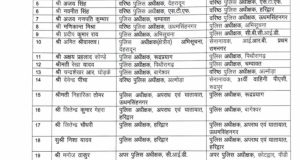The Archaeological Survey of India (Delhi Circle) of Ministry of Culture has discovered a hoard of 254 Copper Coins in the premises of Khirki Mosque during the course of conservation of the monument. This mosque lies on the southern periphery of the village Khirki. The mosque was built by Khan-i-Jahan Junan Shah, the Prime Minister of Firoz Shah Tughluq (1351-88), and is believed to be one of the seven mosques built by him.
Archaeological Survey of India had taken up the task of cleaning of the area to initiate conservation of Khirki Mosque and during the cleaning, a hoard of 254 Coins of medieval period were found near entrance of the monument. Immediately, a team of archaeologist, consternation assistant and photographers rushed to the site and took the hoard of coins under their possession. Few coins got cleaned by the experts of Science of Branch of Archaeological Survey of India and on the basis of preliminary observation, it can be said that some of the coins belong to the reign of Shershah Suri and his successors.
It is pertinent to mention that in the year 2003 a hoard of 63 Coins was found from the same premises during cleaning and conservation. Delhi Circle has started scientific clearance of the area under technical supervision of archaeologists. After cleaning of the coins process to decipher the same will be initiated with the help of experts.
Built with rubble stone, and thickly plastered, the Khirki Mosque is double-storeyed, The lower storey consisting only of a series of basement cells. Battered bastions occupy its four corners, imparting it the look of a fortified building. Gateways project from its three sides, except on the west, each flanked by tapering minarets, the main entrance being from the east. Corresponding with the openings of cells on the lower storey, the upper storey contains perforated windows (khirkis), which have given it its present name. The pillared courtyard is divided into twenty- five squares, five on each side, each square consisting of nine smaller squares. Among the larger squares, three on each side, two on the corners and one in the middle, together with the square in the centre of the courtyard, are each covered with a cluster of nine small low domes of Tughluq pattern. Among the remaining squares, four on the diagonals are left uncovered to admit light, while the others are covered with flat roofs. This ingenious way of covering the courtyard is repeated only in one other mosque erected by the same builder. These two are the only examples of closed mosques in northern India.
 Dainik Nation News Portal
Dainik Nation News Portal




